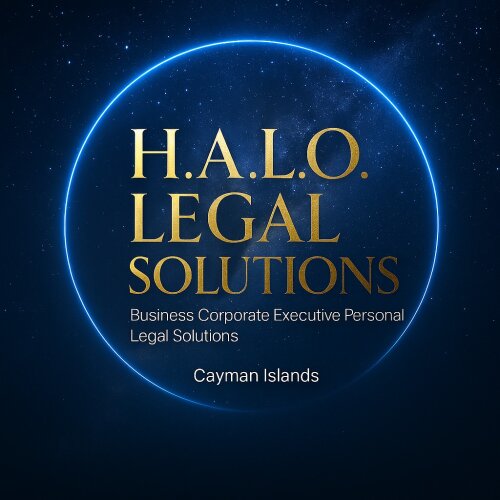Best Equity Capital Markets Lawyers in Cayman Islands
Share your needs with us, get contacted by law firms.
Free. Takes 2 min.
Or refine your search by selecting a city:
List of the best lawyers in Cayman Islands
About Equity Capital Markets Law in Cayman Islands
The Cayman Islands is a leading international financial center, particularly well-known for its robust equity capital markets (ECM) framework. Companies and investors worldwide frequently use Cayman Islands structures for initial public offerings (IPOs), private placements, rights issues, share buybacks, and secondary fundraisings. The Cayman Islands provides a flexible corporate environment, efficient regulatory processes, and a respected legal system based on English common law principles, making it a popular jurisdiction for raising equity capital in both public and private markets.
Why You May Need a Lawyer
Navigating equity capital markets transactions can be complex, and legal advice is crucial for many reasons. You may need a lawyer if you are:
- Considering listing a Cayman Islands company on an international stock exchange.
- Looking to conduct a private placement, secondary offering, or rights issue involving Cayman entities.
- Engaging in mergers, acquisitions, or restructurings involving publicly traded Cayman corporations.
- Dealing with regulatory compliance, disclosure, or securities law questions.
- Drafting or reviewing prospectuses, offering documents, or shareholder agreements.
- Seeking guidance on cross-border securities regulations and dual listings.
- Responding to investigations or enforcement actions by regulators.
A Cayman Islands ECM lawyer helps you manage risks, comply with local and international regulations, and ensure proper structuring of your capital raising activities.
Local Laws Overview
Several key laws and regulations govern equity capital markets in the Cayman Islands:
- The Companies Act (2023 Revision): Governs the incorporation, operation, and regulation of Cayman companies. It also sets out the legal basis for share issuances, buybacks, and shareholder rights.
- The Securities Investment Business Act (SIBA): Regulates persons and entities providing securities investment business, including brokers, market makers, and investment advisors.
- The Mutual Funds Act: Governs the regulation and registration of mutual funds, many of which engage in capital-raising activities.
- Anti-Money Laundering Regulations: Imposes requirements relating to compliance, client due diligence, and reporting.
- Overseas Listings: Cayman companies are frequently listed on global stock exchanges. While there is no local securities exchange, Cayman law supports international listings and provides necessary statutory mechanisms for compliance.
- Data Protection Act: Impacts the handling of personal data in relation to equity offerings and investor relations.
Legal practitioners ensure compliance not only with local Cayman law but also with any relevant foreign laws or stock exchange requirements depending on where shares are being offered or listed.
Frequently Asked Questions
What are equity capital markets?
Equity capital markets refer to the platforms and processes by which companies raise money by issuing shares to investors, either through private sales or public offerings such as IPOs.
Why do companies choose the Cayman Islands for equity offerings?
Companies select the Cayman Islands due to its business-friendly environment, absence of direct taxes, flexible corporate structure, internationally recognized legal system, and strong investor protections.
Are foreign investors allowed to participate in Cayman equity offerings?
Yes, the Cayman Islands is open to foreign investors. There are no exchange controls, and shares can be freely held and transferred, subject to any restrictions imposed by company constitutional documents or transactional agreements.
Does the Cayman Islands have its own stock exchange?
The Cayman Islands Stock Exchange (CSX) provides a local platform for listings, particularly for funds and specialist securities, though most Cayman companies seeking significant equity capital opt for major international exchanges such as the New York Stock Exchange or Hong Kong Stock Exchange.
What documents are needed for an equity offering in the Cayman Islands?
Key documents include the prospectus or offering memorandum, constitutional documents (Memorandum and Articles of Association), board and shareholder resolutions, securities purchase agreements, and relevant regulatory filings.
What regulations must be followed for an IPO involving a Cayman company?
You must follow Cayman Islands company law, any relevant securities laws in the jurisdiction of the listing exchange, and the listing rules of that exchange. Investor disclosure rules, anti-money laundering, and due diligence requirements are key considerations.
Do Cayman Islands companies have to make public disclosures?
If listed on a stock exchange, Cayman companies comply with the disclosure requirements of that exchange and the relevant securities regulator. Privately held companies have no general public reporting obligation under Cayman law.
Can I issue different classes of shares in a Cayman company?
Yes, the Companies Act allows great flexibility regarding share classes, including voting, non-voting, preferred, and redeemable shares, as long as they are authorized in the company’s constitutional documents.
How are shareholder disputes handled in the Cayman Islands?
Disputes are typically resolved under Cayman Islands law and may involve litigation before the Grand Court. Alternative dispute resolution, such as mediation or arbitration, is also available and often used.
Are there tax implications for investors or companies in the Cayman Islands?
The Cayman Islands does not impose corporate income tax, capital gains tax, or withholding tax on equity transactions. However, investors should seek tax advice regarding implications in their home jurisdictions.
Additional Resources
If you need information or assistance related to equity capital markets in the Cayman Islands, consider reaching out to:
- Cayman Islands Monetary Authority - Regulates and supervises financial services, including aspects of the equity markets.
- Cayman Islands Stock Exchange - Facilitates listings for Cayman entities.
- The Cayman Islands Law Society - Professional body for lawyers practicing in the islands.
- The Government of the Cayman Islands, Ministry of Financial Services - Source for legislation and regulatory updates.
- Offshore law firms with established ECM practices - Many international firms maintain offices in the Cayman Islands.
Next Steps
If you believe your situation involves equity capital markets issues in the Cayman Islands, taking the following steps can help you move forward:
- Identify your objectives, such as raising capital, conducting a listing, or managing regulatory compliance.
- Gather relevant documents, including company constitutional documents, prior offering materials, and correspondence with regulators.
- Contact a qualified Cayman Islands law firm with expertise in equity capital markets. Arrange an initial consultation and provide them with full details.
- Ask about their experience with similar transactions or issues and request an outline of the process and estimated costs.
- Stay proactive with due diligence and ensure all regulatory and tax considerations are addressed in advance.
Engaging experienced legal advisers ensures your capital markets activities comply with all local and international legal requirements and supports a smooth and successful transaction.
Lawzana helps you find the best lawyers and law firms in Cayman Islands through a curated and pre-screened list of qualified legal professionals. Our platform offers rankings and detailed profiles of attorneys and law firms, allowing you to compare based on practice areas, including Equity Capital Markets, experience, and client feedback.
Each profile includes a description of the firm's areas of practice, client reviews, team members and partners, year of establishment, spoken languages, office locations, contact information, social media presence, and any published articles or resources. Most firms on our platform speak English and are experienced in both local and international legal matters.
Get a quote from top-rated law firms in Cayman Islands — quickly, securely, and without unnecessary hassle.
Disclaimer:
The information provided on this page is for general informational purposes only and does not constitute legal advice. While we strive to ensure the accuracy and relevance of the content, legal information may change over time, and interpretations of the law can vary. You should always consult with a qualified legal professional for advice specific to your situation.
We disclaim all liability for actions taken or not taken based on the content of this page. If you believe any information is incorrect or outdated, please contact us, and we will review and update it where appropriate.
Browse equity capital markets law firms by city in Cayman Islands
Refine your search by selecting a city.
















